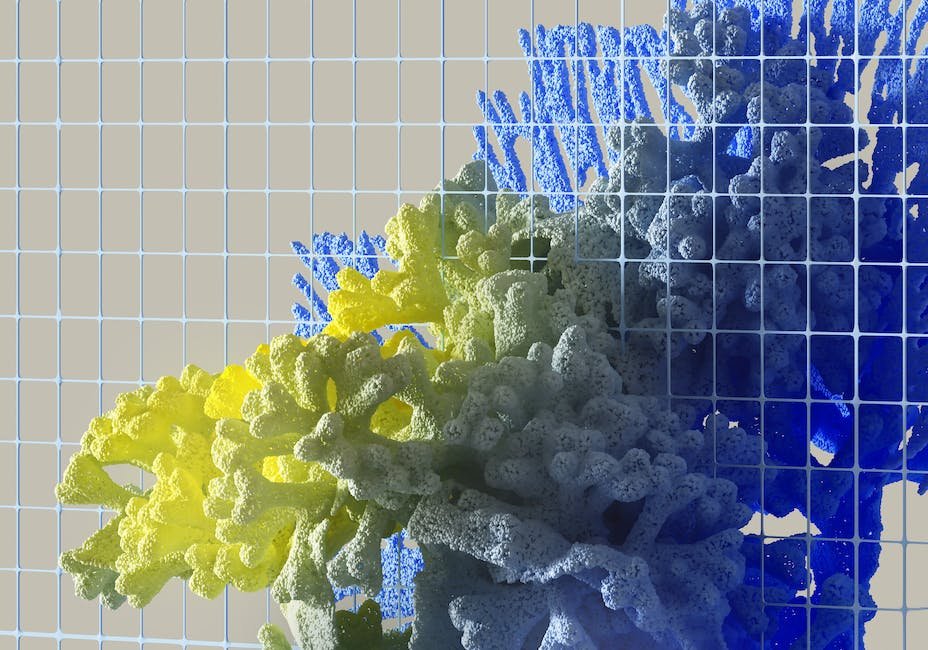As we propel further into the 21st century, Artificial Intelligence (AI) is becoming increasingly central to our day-to-day lives. It shapes how we communicate, work, learn, and entertain ourselves. AI is a multifaceted technology, with applications ranging from simple rule-based systems to sophisticated machine learning algorithms. However, as great as its benefits may be, AI’s interaction with our personal data raises significant privacy issues. This exploration aims at demystifying the mechanisms of how AI interacts with personal data, the inherent data management practices, and the extant regulations safeguarding our data. It finally contemplates the future of AI and its potential impact on data privacy.
Understanding Artificial Intelligence
The Fundamental Principles of Artificial Intelligence and Its Inner Workings
Artificial Intelligence (AI), a marvel of 21st-century technology, is deeply embedded in modern lives, from digital assistants like Siri to recommendation algorithms on Netflix and Spotify. In the simplest terms, AI stands for any task a computer program performs that—if executed by humans—requires intelligence. But, delving deeper into the underlying themes and principles of Artificial Intelligence brings forth a whole new vista of appreciation for its complexity and potential.
The intellectual ‘DNA’ of Artificial Intelligence can be interwoven into three fundamental principles: logical reasoning, expanded expertise, and machine learning.
Logical Reasoning, the Prima Facie of AI
One of the paramount principles of AI is logical reasoning. AI systems are sophisticated enough to peruse enormous data sets, evaluate underlying patterns, interpret information, and make informed decisions. This cognitive application is a testament to the process through which AI learns, exercises judgment, and solves intricate problems—mimicking the human intellect.
Augmented Expertise: The AI Advantage
AI has the unique capacity for specificity, owing to the principle of expanded expertise. Its increasing usage in industries like healthcare is proof of the same. Here, AI can sift through innumerable healthcare records, predict disease outcomes, and even prioritize patients’ needs— tasks requiring a significant degree of specialized knowledge. This expanded expertise reflects the deep-seated diversity and the in-depth dexterity of AI to exhibit expert knowledge in an array of fields.
Machine Learning, the Learning Curve of AI
In the edifice of Artificial Intelligence, the principle of machine learning forms the resilient backbone. Machine learning, an AI subset, equips programs with the potential to refine their performance by learning from data patterns and previous experiences. This self-improving mechanism of AI—is it not awe-inspiring?
The Mechanics behind the Screen
Artificial Intelligence functions on a set of algorithms, simulated neural networks, and heuristics—a tall order of mathematical and computational acumen. These processes facilitate the training and tuning of an AI system, thereby allowing it to evolve, learn and provide solutions, hence transposing binary data into intelligent behaviors.
Algorithms form the basis of every AI application. They analyze and learn from data to make predictions or decisions without being explicitly programmed to perform the task. Next, simulated neural networks, often referred to as Artificial Neural Networks (ANN), are modelled after the human brain’s neural networks. These complex networks allow the AI to learn from observational data.
Also, heuristics—a problem-solving approach, enhances AI. It draws upon methodologies that are not guaranteed to be optimal or perfect but are sufficient for reaching immediate goals. Essentially, heuristics put forth viable shortcuts to finding solutions, thus helping AI to make quick, intelligent decisions.
Fuelled by dazzling advancements, Artificial Intelligence has moved from mere sci-fi conjecture to everyday reality. The intricate dance of logical reasoning, augmented expertise, and machine learning empowers this dynamic field to evolve ceaselessly. Understanding the fundamental principles that forge the intelligence in AI, probes at the very notion of aptitude, expertise and progress. The promise of a future where knowledge dances with AI innovation is indeed, intellectually intoxicating.

How AI interacts with personal data
Personal Data: The Fuel for AI, And Its Implications for Privacy
Artificial Intelligence (AI) thrives on personal data, a component as essential as fuel to a car. This transformative technology extensively captures and processes personal data to create predictive models, make data-driven decisions, and subsequently, streamline its actions. Personal data’s integration into AI is indeed significant, albeit accompanied by pressing concerns about privacy.
AI employs data mining, a process that analyses vast sets of data to establish patterns and formulate predictions. This data often encapsulates personal information such as habits, interests, location, among other sensitive details. Alongside traditional relational data, AI is also capable of consuming unstructured data gleaned from social networks, blogs, and websites, offering a comprehensive insight into individuals’ lives.
Machine learning, a subset of AI, particularly relies on personal data to improve decisions over time. AI platforms access vast databanks of user information, training the algorithms through an iterative learning process. Consequently, these digital constructs adapt, grow, and hone their decision-making capabilities mirroring a human-working enterprise. The more personal data fed to them, the more accurate they become, thus creating an escalating demand for data.
However, this voracious consumption of personal data presents palpable implications for privacy. The high-profile case of UK’s AI firm Cambridge Analytica, credited for swaying elections through mined data, warrants serious discussions on the implications of AI’s access to personal data. The debate on privacy has since ratcheted up, questioning the fine line between AI advancements and individual privacy.
Privacy breaches, potent enough to cause significant harm, are increasingly evident. The risk escalates with AI systems having unfettered access to personal data, potentially enabling identity theft, fraud, or other, more sinister, criminal activities. Furthermore, robust AI systems also raise threats of ‘deep fakes’ – manipulation of images, videos, or text, potentially leading to misinformation and defamation.
At a more subconscious level, AI’s indefatigable data mining can subtly influence personal decision-making, swaying public opinion by tailoring online experiences. On platforms like social media, AI manipulates feeds to accentuate content personalized to the individual’s recognized preferences, thus subtly guiding actions and decisions.
The intersection of AI and privacy is, however, not entirely grim. Developing solutions like differential privacy algorithms provide anonymity while retaining the core data necessary for learning. Homomorphic encryption, too, offers a promising route, allowing AI to use and learn from encrypted data without actually decrypting it, thereby maintaining privacy.
The dynamism AI brings, propelled by personal data, is inevitable. But so is the necessity to institute comprehensive strategies to uphold privacy. There is an urgent need for robust regulatory frameworks, observant audits, encrypted data algorithms, and most importantly, a pervasive understanding of AI’s fundamental workings to ensure a future where AI and privacy coexist harmoniously. AI’s relentless march forward must be balanced by an equally strong safeguarding of personal privacy, ensuring technology remains a tool for human betterment, not a subtle undermining of fundamental rights. As AI grows more complex and integrated into our daily lives, the dialogue between AI’s use of personal data and the preservation of privacy becomes ever more critical.
In the pursuit of an AI-powered world, keen awareness and vigilance ensure personal data neither compromises privacy nor stifles the AI’s promise. The unfolding narrative between AI, personal data and privacy is a compelling testament to balancing technological advances with the innate human right to privacy.

Data management practices in AI systems
Delving deeper into the realm of AI, it is essential to discuss the standard methodologies for data management and how they implicate data privacy.
The first quintessential procedure is data categorization, a method responsible for systematically grouping data into various clusters based on correlation and attributes. This classification methodology allows AI to understand and analyze giant pools of data with finesse, enhancing its learning and decision-making capabilities.
However, privacy concerns emerge as sensitive information is grouped and classified. If the categorized data falls into the wrong hands, it can have serious privacy implications. Layered privacy protocols and encrypted storage are necessary to avert inadvertent data leaks, fostering a secured analytic environment for AI to operate confidently.
Evidently, the technique of data anonymization is also employed often. Extrinsic identifiers are removed from datasets, lending them anonymous but maintaining their intrinsic value for AI computations. This assures that while AI can still discern patterns and make deductive relations, it is practically impossible to trace back to the original data source, promoting privacy protection.
Notwithstanding its effectiveness, data anonymisation could result in privacy infringements if sensitive data is not adequately disguised or if sophisticated cross-referencing techniques are used to reidentify anonymized data. Reinforcing anonymization with auxiliary technologies, such as k-anonymization, l-diversity, and t-closeness, could intensify privacy protection.
Federated learning, a more recent methodology, enables AI to learn from decentralized data, stored across multiple devices or locations. It shields user privacy by keeping the data on the original device itself while sharing the learned model across the network. Although this methodology offers vigorous privacy protection, infrastructure challenge and complex orchestration could be potential roadblocks in its broader acceptance.
Data management in AI is undeniably multifaceted, with each methodology carrying its own unique set of privacy implications. It requires a synthesis of robust encryption methods, scrupulous security measures, and stringent regulatory controls to ensure privacy is conserved as we move into this AI-powered epoch.
Indeed, continuous vigilance is critical, but without an intimate understanding of AI’s potential and limitations, effective privacy protection remains challenging. Thus, mitigating data privacy concerns in AI warrants not only secure data management methodologies but also comprehensive knowledge of AI’s operational persona, emphasizing our collective responsibility to be informed in an increasingly automated world.

AI and Regulatory Compliance
Building upon the comprehensive exploration of AI and its intricate ties to personal data as well as the methodologies of data management, the current discourse shifts to regulatory frameworks that govern AI and data privacy, evaluating their effectiveness and need for evolution.
Regulations are crucial for preserving citizens’ trust in a networked society, particularly in relation to data privacy. Currently, the General Data Protection Regulation (GDPR) reigns at the forefront of such frameworks. Although primarily European, its intricate rules and substantial fines have influenced global standards. Despite its thorough approach, GDPR offers limited guidance for AI’s unique constellation of challenges, and is often criticized for its stringency restricting innovation.
On the American front, the state of California enacted the California Consumer Privacy Act (CCPA) in 2020, espousing enhanced consumer rights in terms of data access, deletion, and opt-out options. However, the CCPA lacks explicit provisions concerning AI and data privacy, making its pertinence to AI somewhat nebulous.
The crucial challenge for both these frameworks, and others around the world, predominantly lies in the specificity of their application to AI and machine learning. The mercurial nature of AI’s engagement with data necessitates a flexible and foresighted regulatory approach.
Moreover, AI-powered technologies require self-regulatory mechanisms, such as ethical codes of conduct and privacy-by-design approaches, that place privacy protection at the heart of AI development. These self-regulations involve applying principles of minimal data collection, limited data retention, and secure data storage right from the inception of a technology or algorithm. Such proactive approach emphasizes the morality and ethics intertwined with technological advancement, thereby opening avenues for greater transparency, accountability, and autonomy.
In terms of effectiveness, the current regulatory frameworks present a mixed picture. For example, GDPR’s broad reach and rigorous standards have ushered in an era of heightened awareness regarding data privacy. However, the practical application of these regulations is fraught with implementation difficulties, breeding a disarray of potentially inconsistent national laws.
In conclusion, while current regulatory frameworks have made inroads in governing data privacy in relation to AI, they stop short of offering comprehensive guidance specifically catering to the intricacies of AI. Future developments should aim to establish robust yet flexible policies that strike the critical balance between fostering AI innovation and upholding stringent data privacy standards. Furthermore, the inclusion of self-regulatory mechanisms in AI development hints at a potentially viable solution that could seamlessly blend regulatory frameworks and AI ethics for more thorough and effective governance. The onus, thereby, lies on instilling consciousness in technology while fortifying its unassailable spirit of innovation.

Future of AI and data privacy
As the frontier of artificial intelligence continues to expand, so too do the ethical and legal considerations nested within its framework. Among the most prominent future developments is the rise of predictive analytics, an aspect of AI that aims to anticipate outcomes and behaviors based on sophisticated algorithms crunching vast swathes of data. While offering unprecedented possibilities in sectors such as healthcare, finance, and security, the hyper-personalized nature of these predictions introduces concomitant concerns on data privacy.
Predictive analytics requires extensive data about individuals’ daily habits, which can yield invaluable insights. However, the same knowledge when mishandled or misappropriated can also pose significant privacy risks. AI developers and users must ensure robust cybersecurity measures to prevent unauthorized access to sensitive information. In the wake of increasing cyber threats, end-to-end encryption, quantum cryptography, and blockchain technologies are gaining prominence for their superior security features.
On a larger scale, beyond the individual or corporation perspective, digital sovereignty, a nation’s control over its own digital information, is a salient facet of the data privacy discussion. With AI’s transcendence of geographical boundaries, the issue of jurisdiction becomes increasingly complex. Development of international norms and regulatory standards around data privacy and AI is an imperative future direction, needing nuanced global cooperation.
Another future development likely to impact data privacy is the advent of AI in public and quasi-public spaces. From facial recognition, traffic management, public safety to urban planning, AI has the potential to significantly transform our cityscapes. However, this public AI uses data collected from citizens, raising questions regarding how and when these AI systems should collect, use and store this data. The management of such data privacy will need advanced legal frameworks protecting citizens while facilitating technological advancement.
Privacy-conscientious AI design, such as privacy-preserving machine learning, promises another striking advancement. Here, models are trained without directly accessing raw data, instead leveraging techniques like differential privacy and secure multi-party computation. This innovative approach can enable privacy protection during the data processing stage, not just during storage and transmission. Research and practical applications in this domain are bound to scale in the coming years.
Undoubtedly, the future of AI is packed with exciting possibilities. However, without careful and comprehensive privacy safeguards, these advancements could inadvertently pave the way for privacy infringements on a previously unimaginable scale. While technical solutions form a critical part of the response, the most holistic approach will also encompass robust legislation, international cooperation, and a renewed emphasis on cultivating an ethic of privacy and security within the field of artificial intelligence.

As we look to the future, AI’s growing capabilities and expanding applications portend both opportunities and challenges. The same technologies that promise to transform business practices, enhance decision-making, and deliver economic benefits also have the capacity to infringe on privacy rights if data is misused or mishandled. Understanding the evolving landscape of AI technology, its interaction with personal data, and how it is regulated is of crucial importance. Furthermore, anticipating future developments can help us take appropriate steps to balance the advantages of AI with the need to protect data privacy. Navigating this new frontier requires attention, adaptation, and informed decision-making so that we harness AI’s immense potential without compromising our privacy.


